...where the lefka ori mountains overlook her gentle harbour...
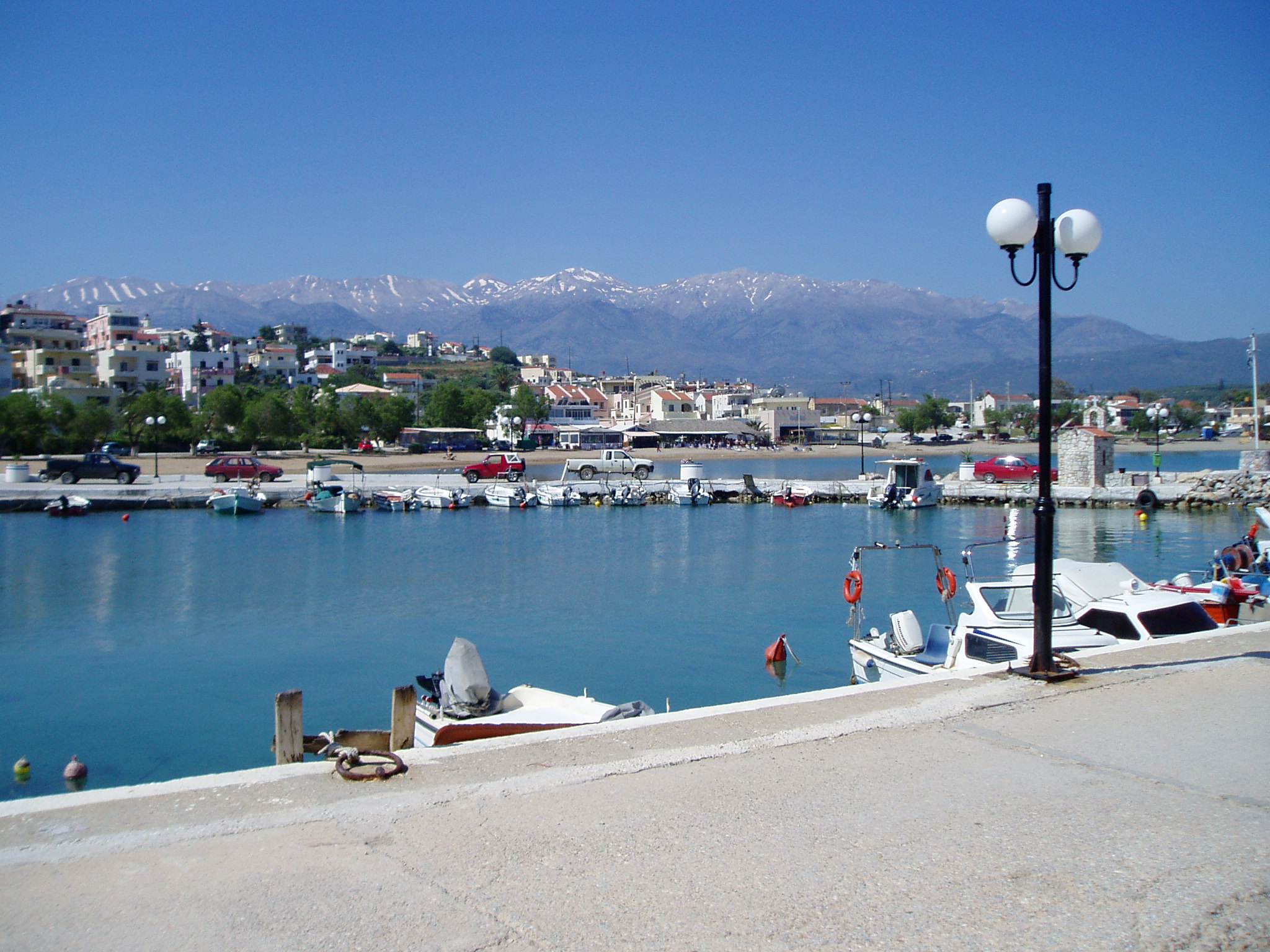
Kalyves is an old settlement, a working village, busy and friendly, with an easy familiarity that you'd find in an old friend; it's the sort of place that makes you feel at home. And wandering in Kalyves, surrounded by olive groves and vineyards and roses, bound by the all-knowing sea on one side and protected by the magnificent Lefka Ori on the other, you almost feel embraced.
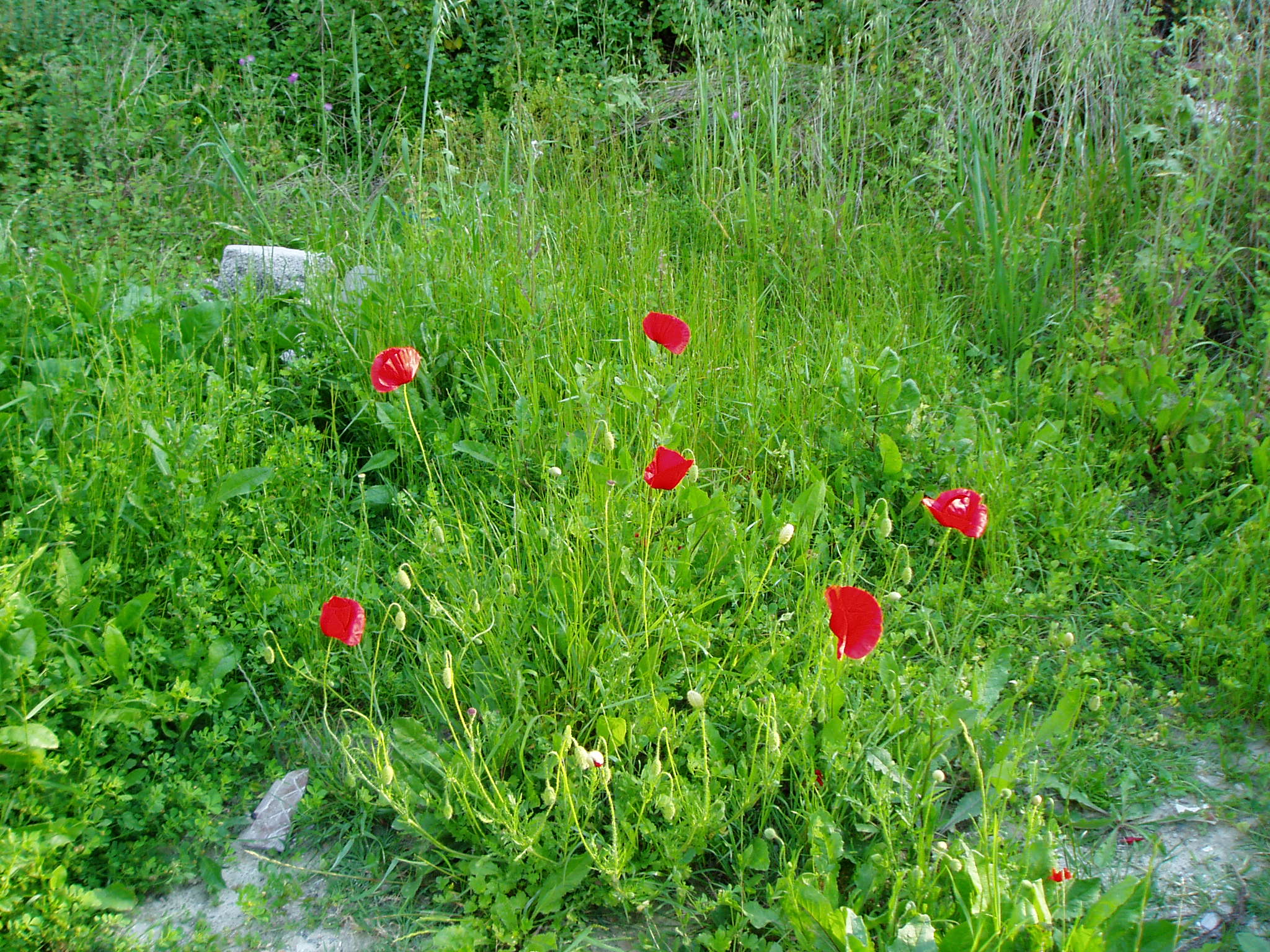
And Kalyves is easy to find, being just a bus ride from Chania in the west or Rethymnon in the east, but make sure you tell the driver where you want to get off because there's no bus stop on this stretch. The Iraklion bus dropped me about 1k from the village, on the flyover where the National Highway crosses the road to the coast, and I was me, in that market day morning of blue sky, orange sun and clouds scudding overhead - travelling on foot again, and in Greece and enjoying the quiet excitement of not knowing what was round the corner.
 The
road was whizzy but I was having fun raggling along smiling at
passing faces and filling my gaze with their world. The sun was doing
it too. Streaming in through a dense sea of leaves, the twisted
oleander and the mulberry trees. And birds and butterflies dancing
round amongst the poppies and daisies and long dry grasses that
border the road. I think I'd lost my mind and gained my senses. Over
the wall just after the garden centre came all the odours of the
countryside: the smell of rich deep resin, the sounds of crackling
undergrowth and once again that friendly smell of chickens and goats.
Their romantic flavours were everywhere and I knew where I was the
moment a lady returned my smile with, "Kalimera" - I knew I was
home.
The
road was whizzy but I was having fun raggling along smiling at
passing faces and filling my gaze with their world. The sun was doing
it too. Streaming in through a dense sea of leaves, the twisted
oleander and the mulberry trees. And birds and butterflies dancing
round amongst the poppies and daisies and long dry grasses that
border the road. I think I'd lost my mind and gained my senses. Over
the wall just after the garden centre came all the odours of the
countryside: the smell of rich deep resin, the sounds of crackling
undergrowth and once again that friendly smell of chickens and goats.
Their romantic flavours were everywhere and I knew where I was the
moment a lady returned my smile with, "Kalimera" - I knew I was
home.
I'd
been there before, some years earlier with my Sandy, but this time I
went alone with just a knapsack of stuff for the week I w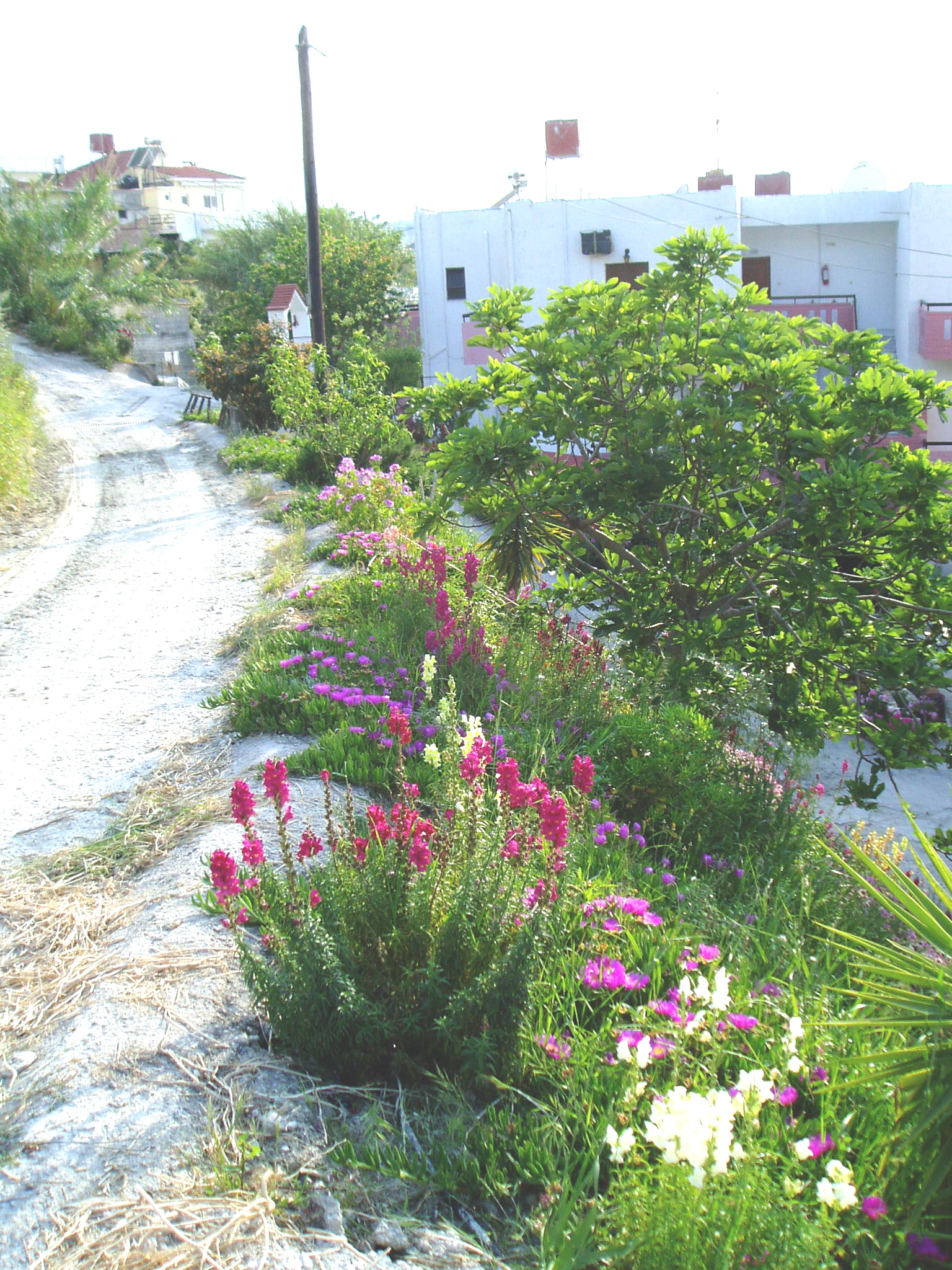 as
to stay.
as
to stay.
I was there in Kalyves to join 50-odd fellow members of the Greekofile website in celebrating the tenth anniversary of its launch by Sylvia and Terry Cooke. There, strangers from all over Britain gathered to make a handful of days a happy, unforgettable, event of easy, getting-to-know-you fun. And it was a great success. We warmed to each other and surprised ourselves in how well we all got on; sharing our feelings and being light and breezy.
And even though there were easy walks on dusty trails and shallow creeks in easy warmth with no change in temperature, well, for once in my life I had no real desire to explore - just to be, because Kalyves invites you to mingle with Greek life; to stroll its alleyways and lanes behind the Kentriki Othos, the weaving middle road, to hear the voices and sounds of a bygone era - to turn a corner and see the smiling sea at the end of a narrow space and know at once this village is exciting just because it lives as it does and is satisfied. By listening to the shopkeepers and locals as I wandered through their shops, I learned more and more about the real Kalyves.
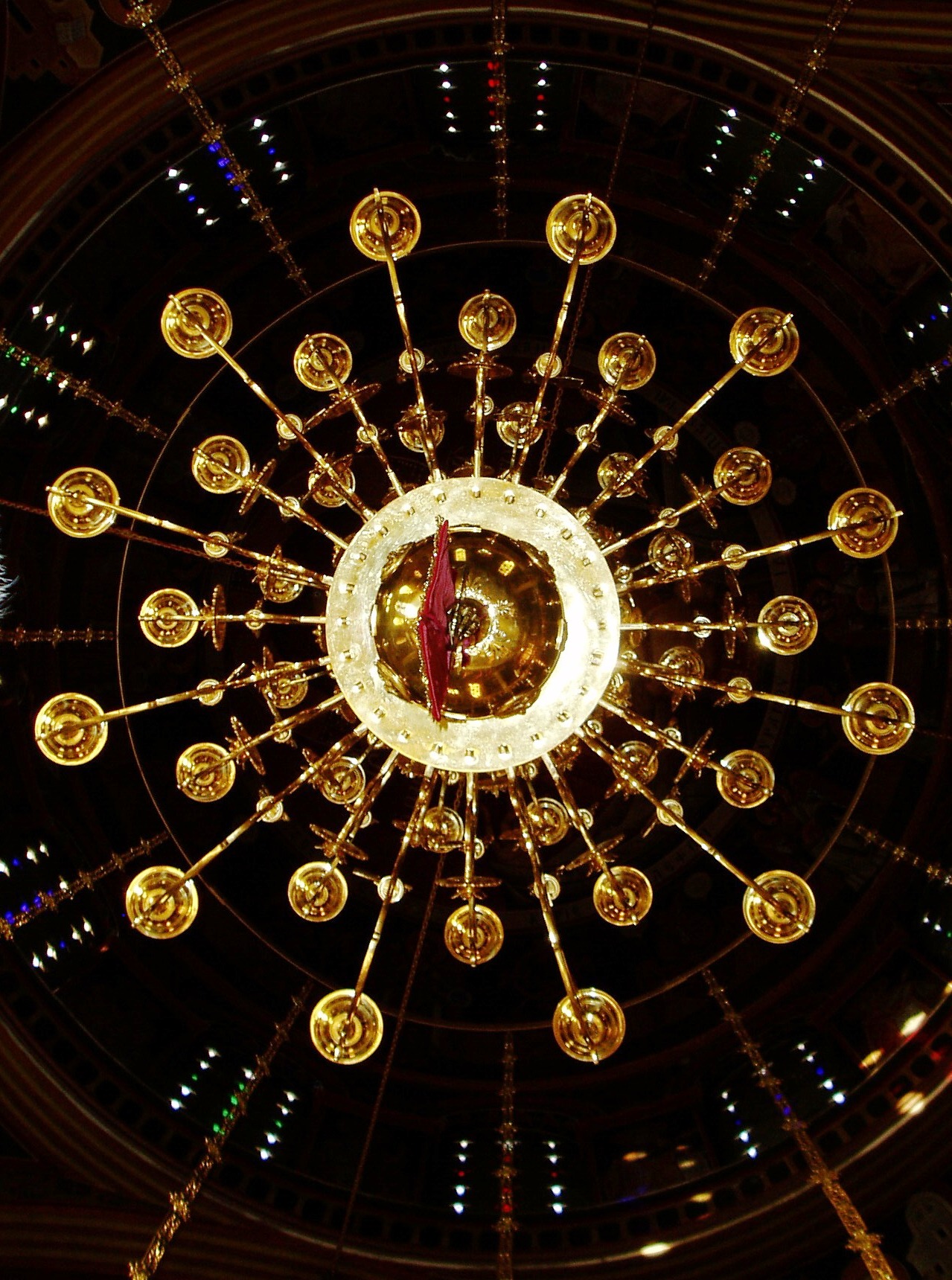 One
day I was lying on the floor in the cool darkness of the church staring up at the
'mother-ship' of a chandelier when one of the priests appeared beside
me. He smiled, I stood up and we began chatting.
One
day I was lying on the floor in the cool darkness of the church staring up at the
'mother-ship' of a chandelier when one of the priests appeared beside
me. He smiled, I stood up and we began chatting.
As we stepped
into the sunshine, he took out a small bag of almonds and raisins and
offered me some whilst drawing my attention to the Platanos tree
stretching its limbs and shading the square in front of us. It was
mighty and gnarled with a kind of immortal look to it and when I
asked him how old it was, I was taken aback to learn it had
been in the square for over 400 years. Quite some time to
stand against so many grim regimes, to strain against so
many cruel parades; while at the same time elsewhere, Artemisia
Gentileschi was being ignored in Rome - much as she is in most of the
world today; and Galileo wondered how far the sky went; whilst in
Britain, Shakespeare wished that the dramatist, Robert Greene, would just
belt up.
And all the while, this tree was patiently growing and witnessing it all.
And then in the shop,'Authentic-Crete', Ariadne told me Kalyves has two rivers and not just the one as most visitors think. There is the gentle river Xidas which crosses beneath the Kentriki Othos flanked by wonderful willows and banks of lillies and stately wooden boats. Already I'd spent many a quiet moment on that bridge sharing the scenes of trout and ducks searching for tasty morsels in the reeds and waters beneath our feet with sympathetic strangers. And the other, the Kiliaris, at the opposite end of town out towards the highway. This too runs from the Lefka Ori and is home to a rare species of dragonfly but, although I tried, unfortunately we never came eye to eye.
But
looking back, I think most of my learning came from the gentlemen of
the H Pembe Ouzeri 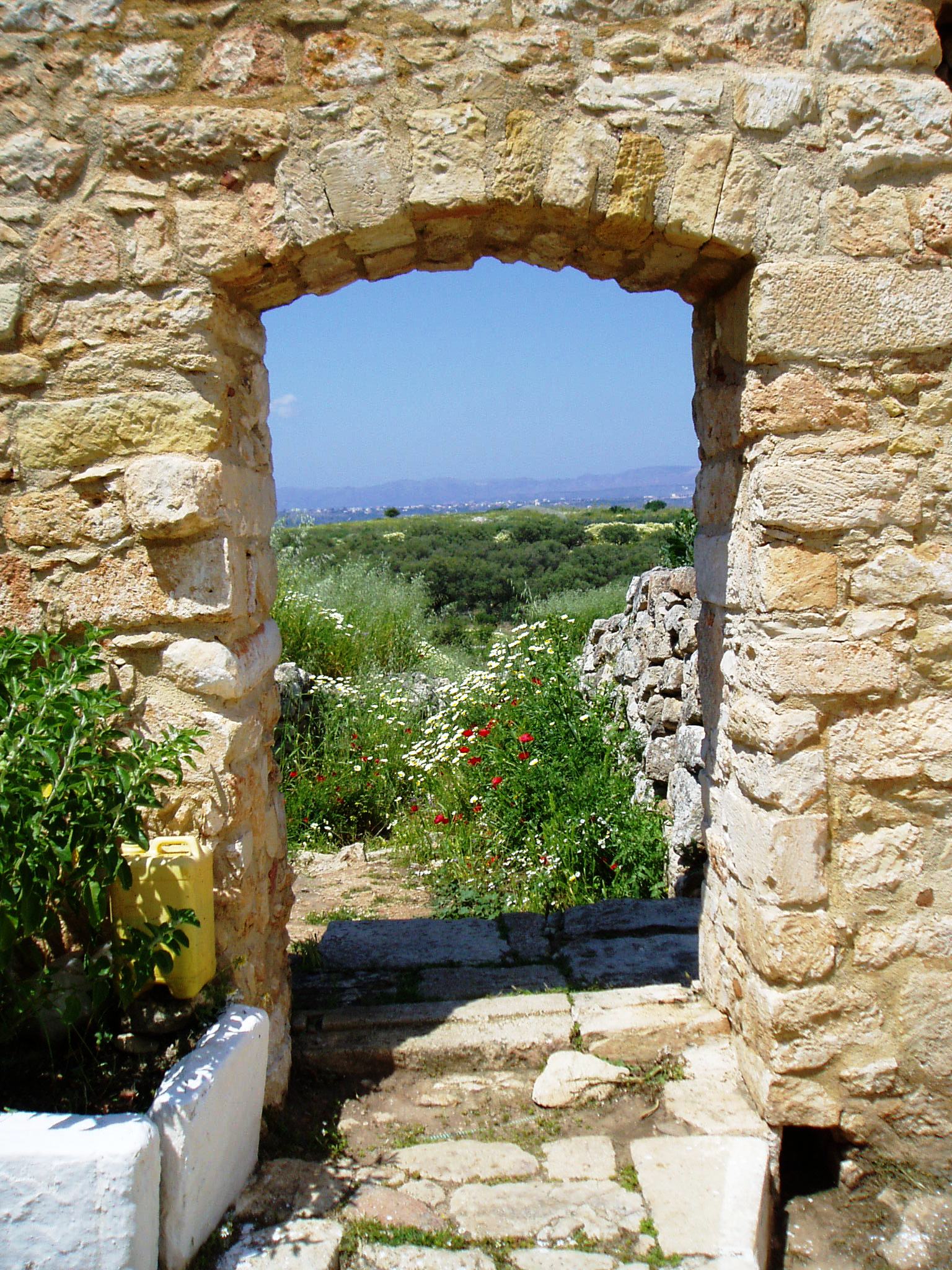 and
our host, Kostas, who lightened up every visit I made there with
tid-bits of information revealed as if for me alone as I sipped my
tsikoudia. I was told of the fascinating 7th century BC
archaeological site of Aptera just along the highway after the
turn-off for Kalami. How, in its day it had been recognised as the
centre for art and commerce - a place of great influence and
importance. And also, from a different era, the Turkish Fortress of
Idjedin, its baths, its theatre, a temple and fabulous banks of wild
flowers and old stone footpaths. In the many years that I've been
visiting this island, I have often wondered as to the significance of
the headscarf worn by so many Cretan men.
and
our host, Kostas, who lightened up every visit I made there with
tid-bits of information revealed as if for me alone as I sipped my
tsikoudia. I was told of the fascinating 7th century BC
archaeological site of Aptera just along the highway after the
turn-off for Kalami. How, in its day it had been recognised as the
centre for art and commerce - a place of great influence and
importance. And also, from a different era, the Turkish Fortress of
Idjedin, its baths, its theatre, a temple and fabulous banks of wild
flowers and old stone footpaths. In the many years that I've been
visiting this island, I have often wondered as to the significance of
the headscarf worn by so many Cretan men.
"Crete has been occupied and oppressed for much of its history and by many different people. We wear the Sariki scarf to honour and remember all those who suffered."
And
the name, Kalyves? "It's from the farmers who lived in the
ancient mountains. Every day they would come down to the generous
plains alongside the sea to sell their wares. But eventually, instead
of making the long daily trek back to their villages, they built huts
where they could make a camp and old Cretan word for 'huts' is
Kalyves...
...
or so they say..."
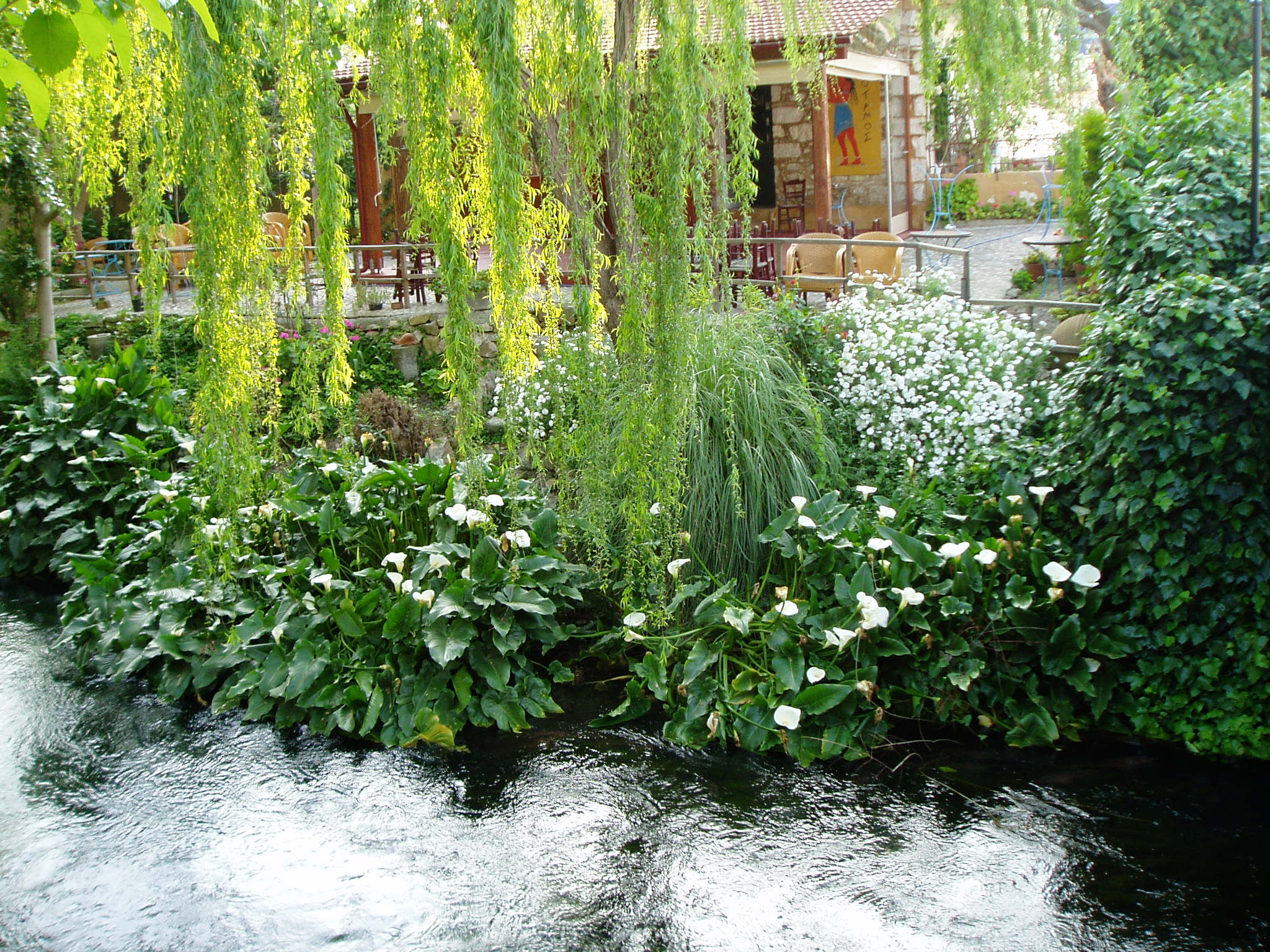 Wandering
back to my rooms along the little road that runs parallel to the
quiet sandy beaches, I'd often take a swim in the early evening sea
and yes, at first it would be cold but after two minutes it became
soft and smooth and never had I felt more at one with everything than
in those silent moments -
Wandering
back to my rooms along the little road that runs parallel to the
quiet sandy beaches, I'd often take a swim in the early evening sea
and yes, at first it would be cold but after two minutes it became
soft and smooth and never had I felt more at one with everything than
in those silent moments -
...splashing
about in the Kritiko Pelagos...
...except
perhaps...
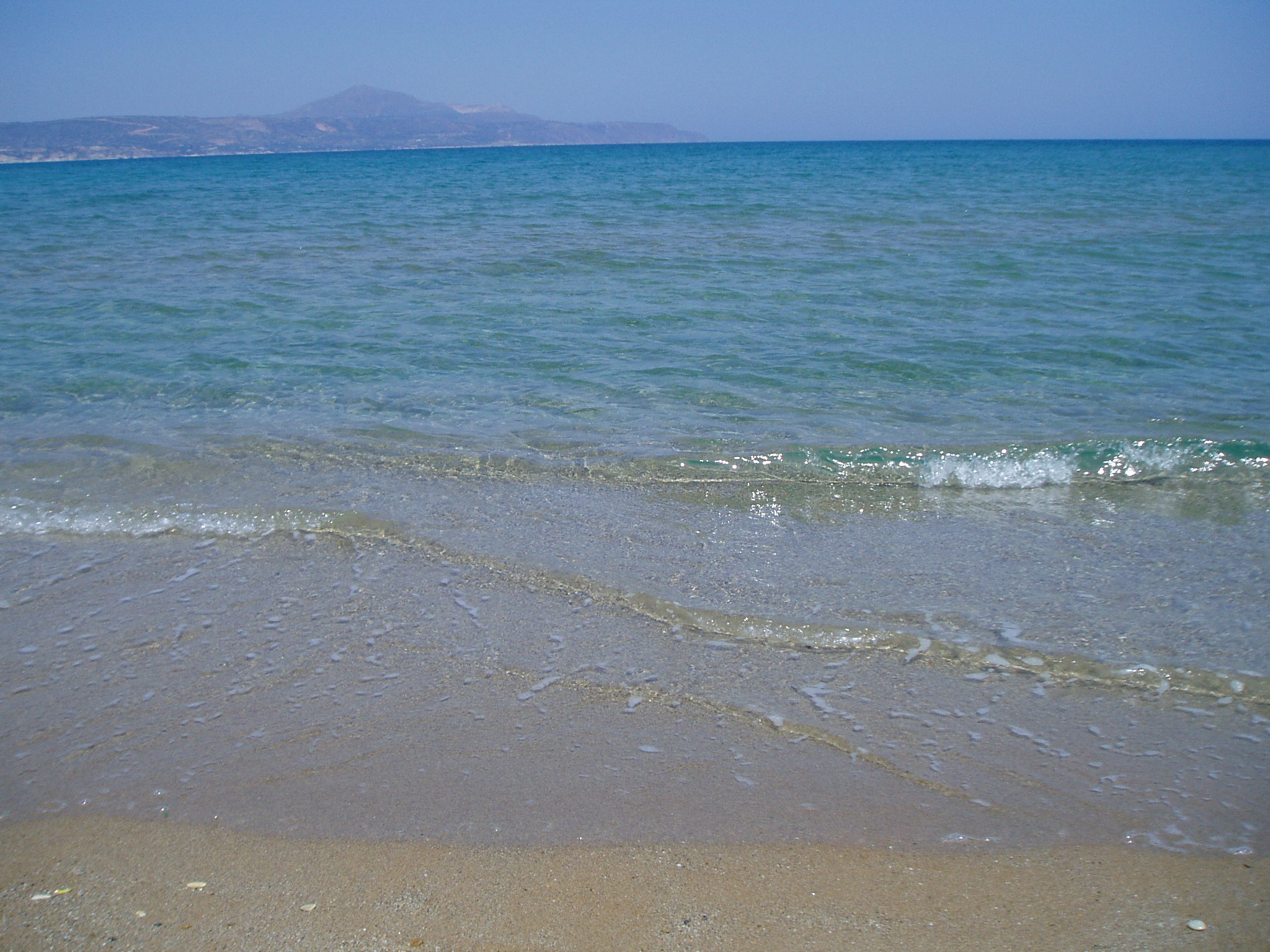
in the bright warm mornings when I'd lost all sense of time and date, and I'd sit outside my front door
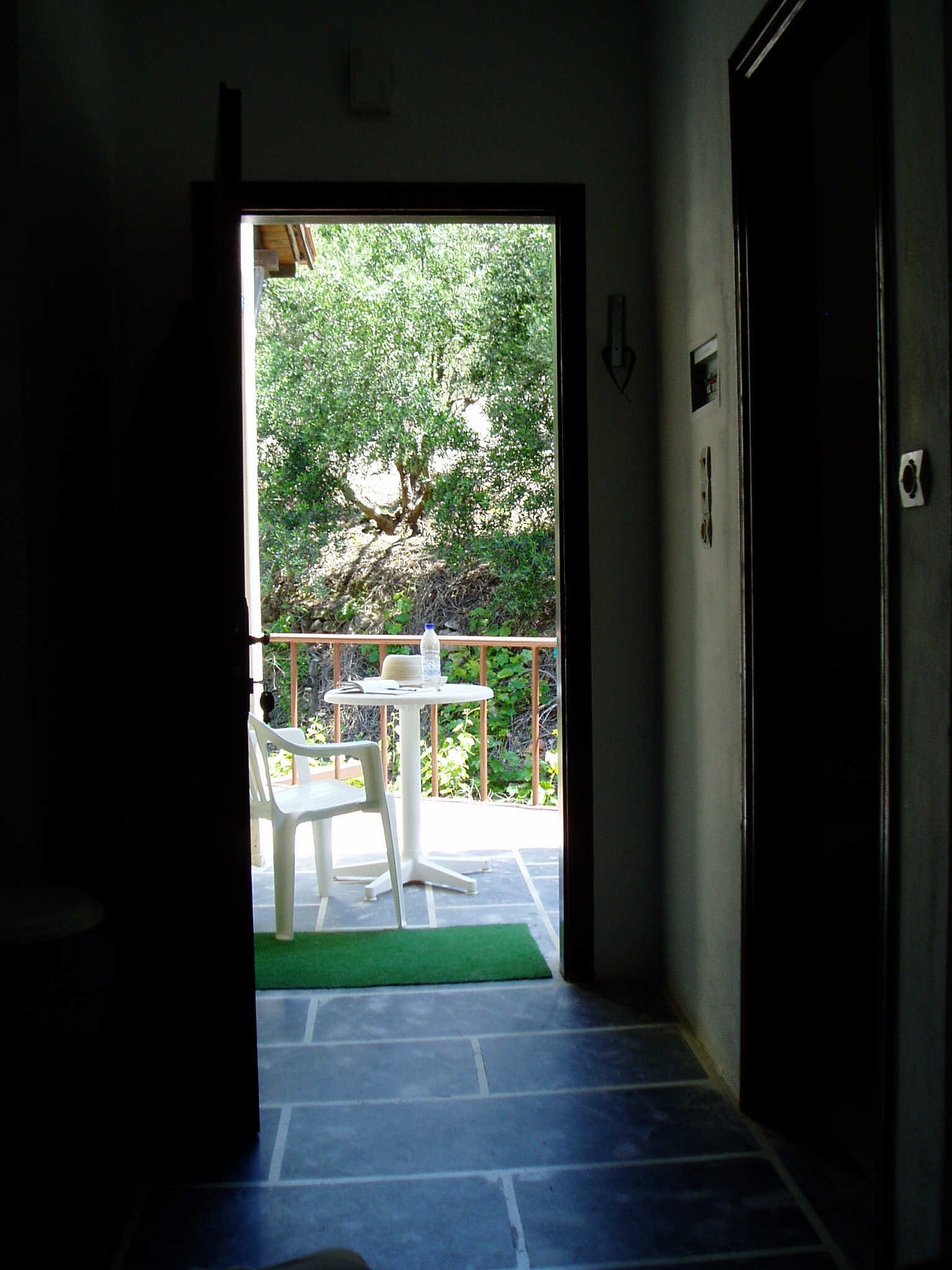 after
a light breakfast of, say, sweet cakes and lime tea,
after
a light breakfast of, say, sweet cakes and lime tea,
my gaze wandering aimlessly through the olive grove,
...or in just warming my feet in the sun after the cold of the marble floor
whilst watching a tiny cream and brown striped spider wheeling from right to left then from left to right on my tabletop.
He was there every morning...his name was... ...er...Frank...
...or listen to the accents of some fishermen bounce across the water from their boat out in the bay...
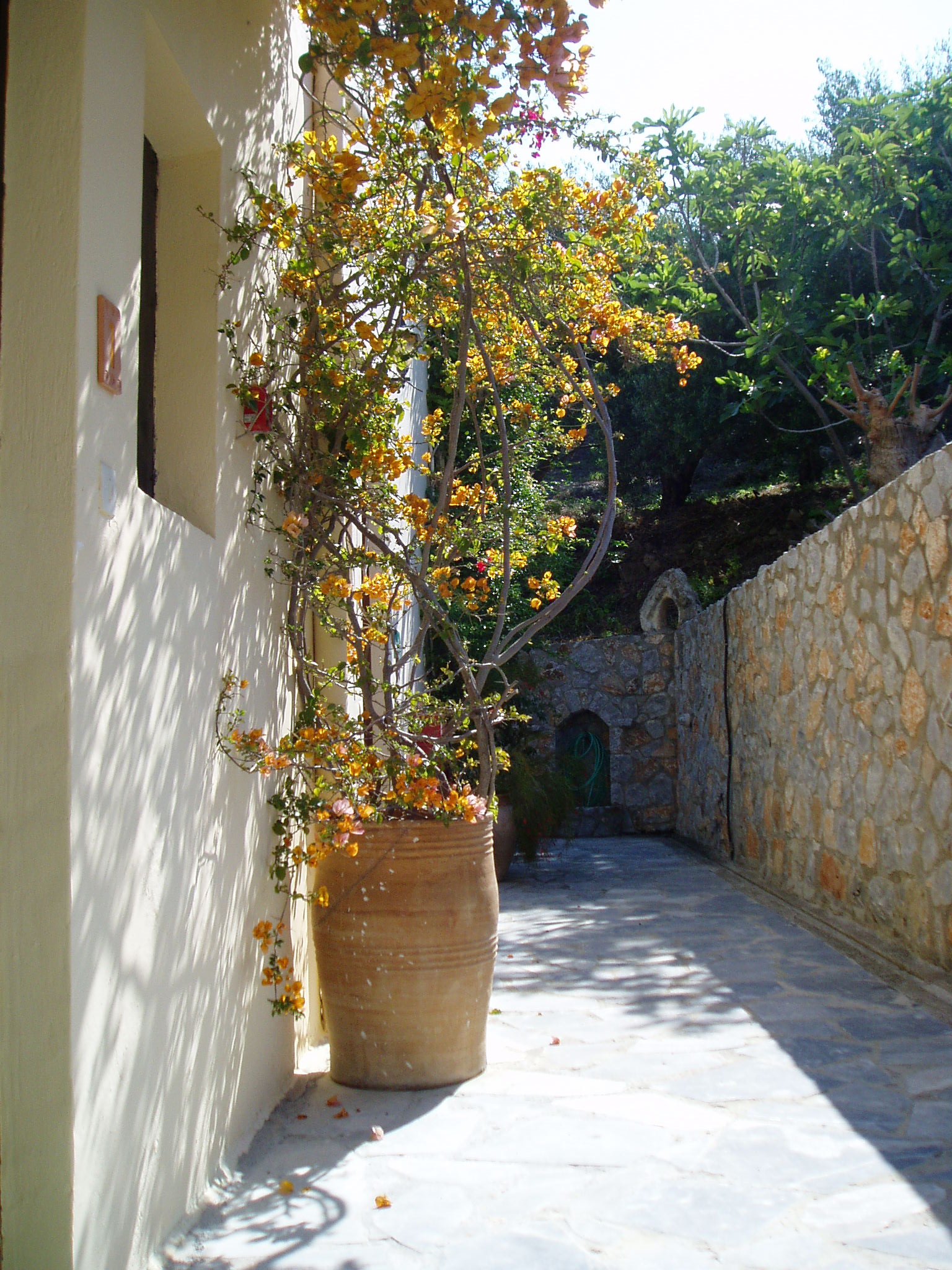
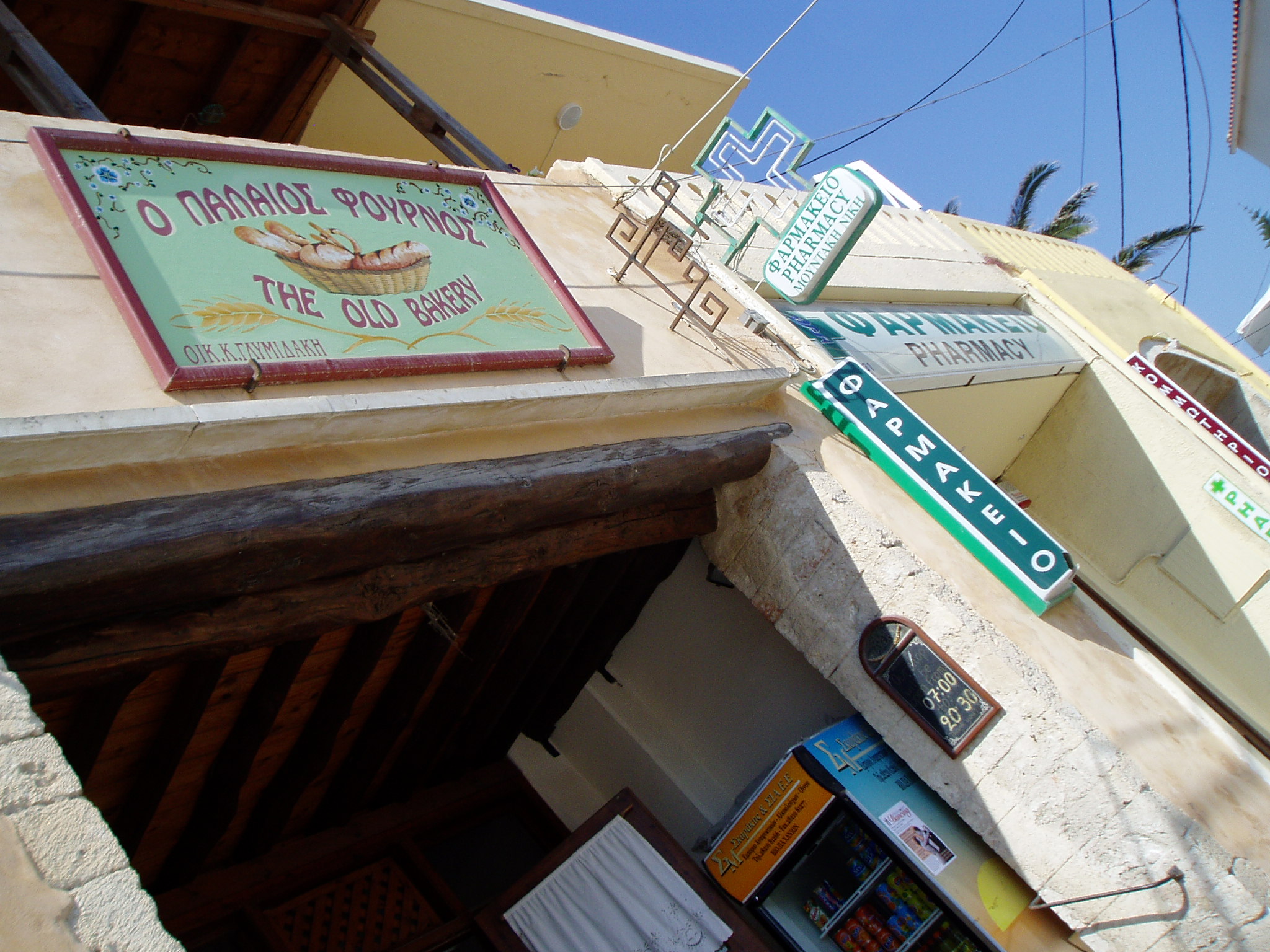 ...or
the night times I'd get back to the Villa Georgia, take my keys from
the amphora, then sit on my balcony chair under the singing, peaceful
stars, eyes closed, listening to the softness of the olive grove
creaking as the heat left the wood and the creatures of the night
danced about.
...or
the night times I'd get back to the Villa Georgia, take my keys from
the amphora, then sit on my balcony chair under the singing, peaceful
stars, eyes closed, listening to the softness of the olive grove
creaking as the heat left the wood and the creatures of the night
danced about.
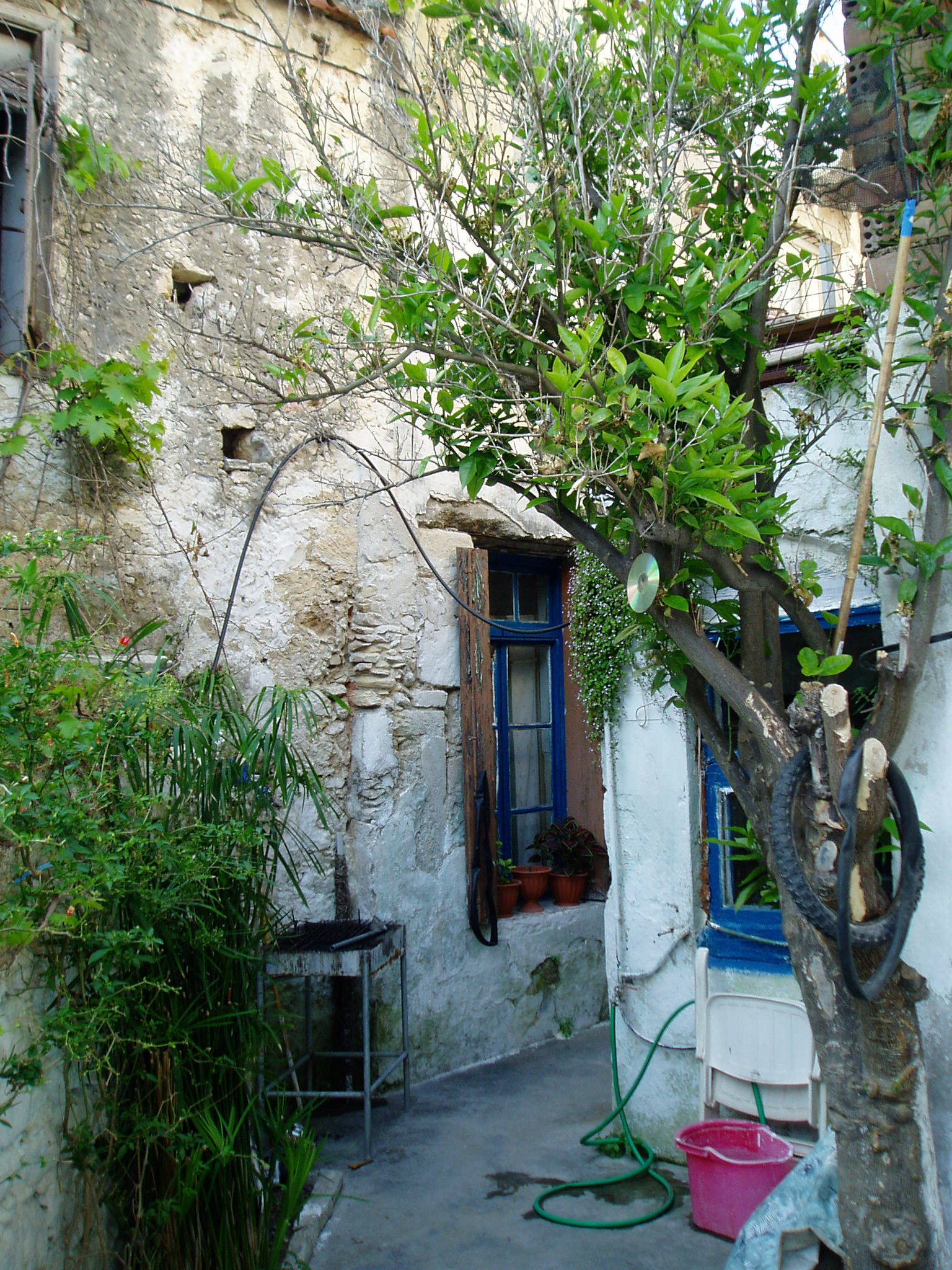
I sincerely hope Kalyves never becomes a famous attraction because visiting there is all about softness, about rural living, local fishing, gentle architecture and village traditions. It's about democracy where freedom of speech gives life to truth and how it is wrong to distort an impression in order to create a more popular image.
Kalyves is now as it always has been - unpretentious and everyday - my reliable friend.
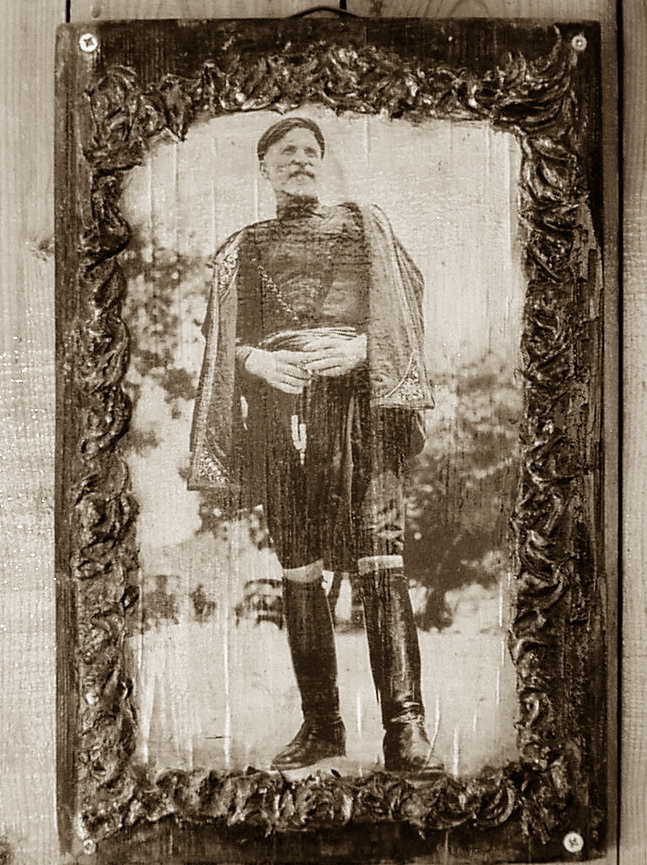
*****
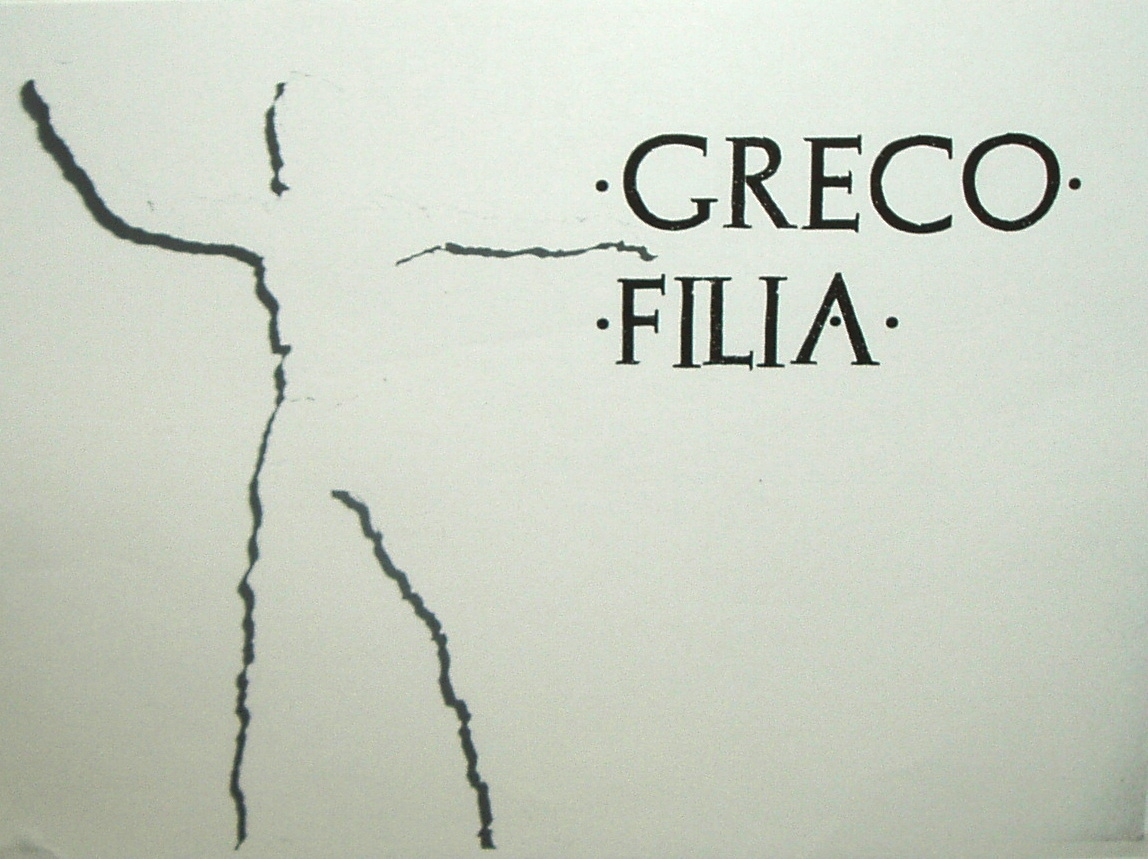
©2019 - PERMISSION TO COPY. The content of this website is the Copyright of Tony Brown and is protected by international copyright law. You are welcome to copy it for personal or non profit, or educational purposes only and you have my permission to do so, provided it is copied and re-published in it's entirety complete with copyright notice and website address. If you wish to copy it for electronic publication on an intranet, website, blog or Newsletter you may do so provided the article is copied and re-published in it's entirety with all html, copyright information and hyperlinks intact and unaltered in any way with no redirects. If you wish to copy it for any other purpose please contact me for permission first.